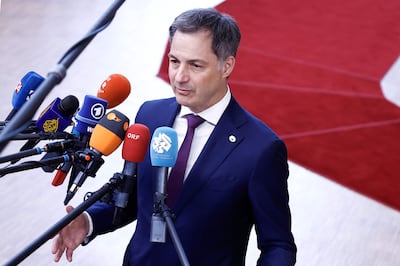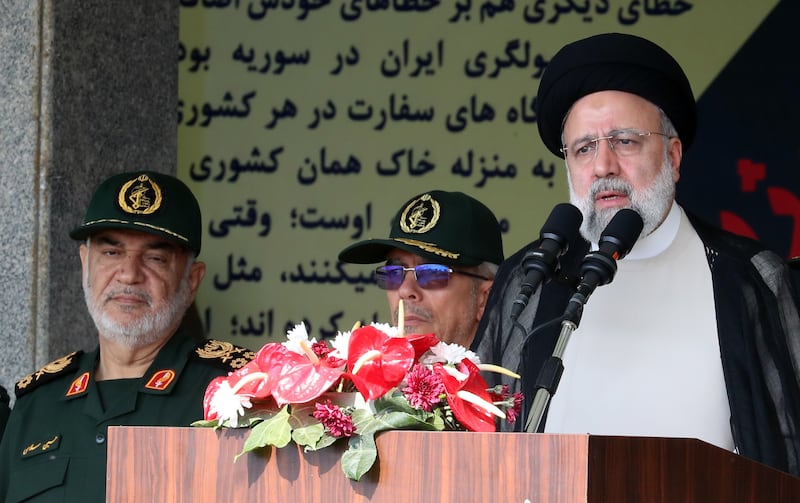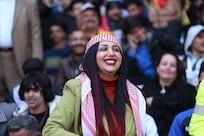Live updates: Follow the latest on Israel-Gaza
European leaders plan to discuss on Wednesday how to impose more sanctions on Iran after its weekend drone and missile attack against Israel, but legal hurdles remain despite voices calling to list the Iranian Revolutionary Guard Corps.
A number of leaders have called for expanding sanctions against Iran while some have also responded positively to a renewed Israeli push to sanction the IRGC.
But senior officials have said this cannot be done without a court decision in an EU country linking the IRGC to terrorist activities.
"My position is that the IRGC should be put on a sanction list and I would be interested to see what the position is of other countries on that topic," Belgian Prime Minister Alexander De Croo told reporters as he arrived at a meeting of the EU's 27 leaders in Brussels.
Ensuring the listing was "solid enough" from a legal point of view "might be difficult," said Mr De Croo, responding to a question from The National.
"But it’s not because it’s difficult that we should not try to do it."
Belgium currently holds the rotating presidency of the EU council.
"We have to give a very clear signal that these types of attacks that we have seen this weekend are not acceptable and they cannot just go unpunished without any reaction from our side," said Mr De Croo.
Before the meeting, French President Emmanuel Macron said that sanctions on Iran needed to be "adjusted".
"We are in favour of sanctions that can also target all those who help manufacture drones and missiles that were used in the attacks last Saturday and Sunday," Mr Macron said.
It is likely that EU leaders will agree to expand existing sanctions on Iran for providing drones to Russia and to allies in the Middle East for use against Israel.
"The idea is to expand the existing Iran-Russia related drone [sanctions] regime," the EU's top diplomat, Josep Borrell, said on Tuesday.
Those who provide Iran with equipment to build drones are already under sanctions.
A draft statement seen by Reuters to be issued after Wednesday's meeting said that: "The EU is ready to take further restrictive measures against Iran, notably in relation to unmanned aerial vehicles and missiles."

Italy's Foreign Minister, Antonio Tajani, said before G7 talks on the island of Capri that "sanctions should be imposed on all those who give drones, weapons and missiles to those who attack Israel and those who attack ships in the Red Sea".
Israel has promised to retaliate to Iran's weekend attack, which was prompted by Israel bombing its consulate in Damascus, killing seven officials.
EU leaders called for restraint, fearing that the retaliations will lead to an all-out regional war as the death toll in Gaza inches close to 35,000 since October.
"For us, it is important that this moment is now also used for further de-escalation and that Israel ... does not respond with a massive attack of its own," German chancellor Olaf Scholz told reporters in Brussels.
Irish Prime Minister Simon Harris said that he hoped that leaders would be able to find a "common voice" in their response to the escalating conflict.
"Ireland certainly remains ready to engage in discussions on how to increase sanctions on Iran," Mr Harris said.






